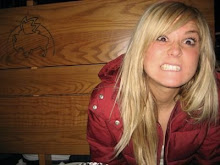Thelen (1999). Historical Institutionalis in Comparative Politics.
Historical institutionalism:
Analyzes organizational and institutional configurations. Others look at particular settings in isolation.
Pays attention to critical junctures and long term processes. Others look at a slice of time or a short term maneuver.
"researching important issues this way, historical institutionalism make visible and understandable the overreaching contexts and interacting processes that shape and reshape states, politics, and public policy making" (katznelson and milner, 693).
Historical Institutionalism: hypothesizes about combined effects of institutions and processes rather than one institution at a time.
1. substantive agenda
2. temporal arguments
3. attentionto contexts and configurations
differences between rat choice and h.i.:
Rational Choice:focus on the coordinating functions of institutions... as generating or maintaining equilibrium.
H.I.:institutions emerge from and are embedded in concrete temporal processes; cases unified in space and time, i.e. transformation to democracy.
Differences in hypothesis forming:
H.I.: begins with empirical puzzle.
R.C.: derive puzzles from observing odd behavior.; uses counterfactuals (things running against norms, or expected behaviors).
Differences in PREFERENCE FORMATION:
H.I.: endogenous (growing within)
R.C.: exogenous (derived outside the body)
View of institutons:
H.I.: start with institutions and ask how they effect individual behavior (they have a historical view of institutions)
R.C.: starts with individuals and asks where institutions came from (functionalist view of institutions). institutions have a coordinating function! institutions sustain equilibrium.
RATIONAL CHOICE MAJOR CONCERNS:
why rational actors create inefficient collective outcomes
why is one equilibrium and not another reached
HISTORICAL INSTITUTIONAL CONCERNS:
institutions cannot be understood in isolation from the political and social setting in when they are embedded (384)
institutions compete
PATH DEPENDENCY:
from wikipedia: In perhaps a related vein, scholars such as Kathleen Thelen caution that the historical determinism embedded in path-dependent frameworks ignore the constant renegotiation of institutional configurations. She suggests that institutions undergo moments of institutional evolution wherein key actors renegotiate the configuration and purpose of said institutions.
critical juncture from wikipedia: David Collier in political science. In the critical juncture framework, antecedent conditions define and delimit agency during a critical juncture in which actors make contingent choices that set a specific trajectory of institutional development and consolidation that is difficult to reverse. This is akin to the concepts of lock-in or positive feedback derived from path dependence in economics...
Analyzes organizational and institutional configurations. Others look at particular settings in isolation.
Pays attention to critical junctures and long term processes. Others look at a slice of time or a short term maneuver.
"researching important issues this way, historical institutionalism make visible and understandable the overreaching contexts and interacting processes that shape and reshape states, politics, and public policy making" (katznelson and milner, 693).
Historical Institutionalism: hypothesizes about combined effects of institutions and processes rather than one institution at a time.
1. substantive agenda
2. temporal arguments
3. attentionto contexts and configurations
differences between rat choice and h.i.:
Rational Choice:focus on the coordinating functions of institutions... as generating or maintaining equilibrium.
H.I.:institutions emerge from and are embedded in concrete temporal processes; cases unified in space and time, i.e. transformation to democracy.
Differences in hypothesis forming:
H.I.: begins with empirical puzzle.
R.C.: derive puzzles from observing odd behavior.; uses counterfactuals (things running against norms, or expected behaviors).
Differences in PREFERENCE FORMATION:
H.I.: endogenous (growing within)
R.C.: exogenous (derived outside the body)
View of institutons:
H.I.: start with institutions and ask how they effect individual behavior (they have a historical view of institutions)
R.C.: starts with individuals and asks where institutions came from (functionalist view of institutions). institutions have a coordinating function! institutions sustain equilibrium.
RATIONAL CHOICE MAJOR CONCERNS:
why rational actors create inefficient collective outcomes
why is one equilibrium and not another reached
HISTORICAL INSTITUTIONAL CONCERNS:
institutions cannot be understood in isolation from the political and social setting in when they are embedded (384)
institutions compete
PATH DEPENDENCY:
from wikipedia: In perhaps a related vein, scholars such as Kathleen Thelen caution that the historical determinism embedded in path-dependent frameworks ignore the constant renegotiation of institutional configurations. She suggests that institutions undergo moments of institutional evolution wherein key actors renegotiate the configuration and purpose of said institutions.
critical juncture from wikipedia: David Collier in political science. In the critical juncture framework, antecedent conditions define and delimit agency during a critical juncture in which actors make contingent choices that set a specific trajectory of institutional development and consolidation that is difficult to reverse. This is akin to the concepts of lock-in or positive feedback derived from path dependence in economics...


0 Comments:
Post a Comment
<< Home